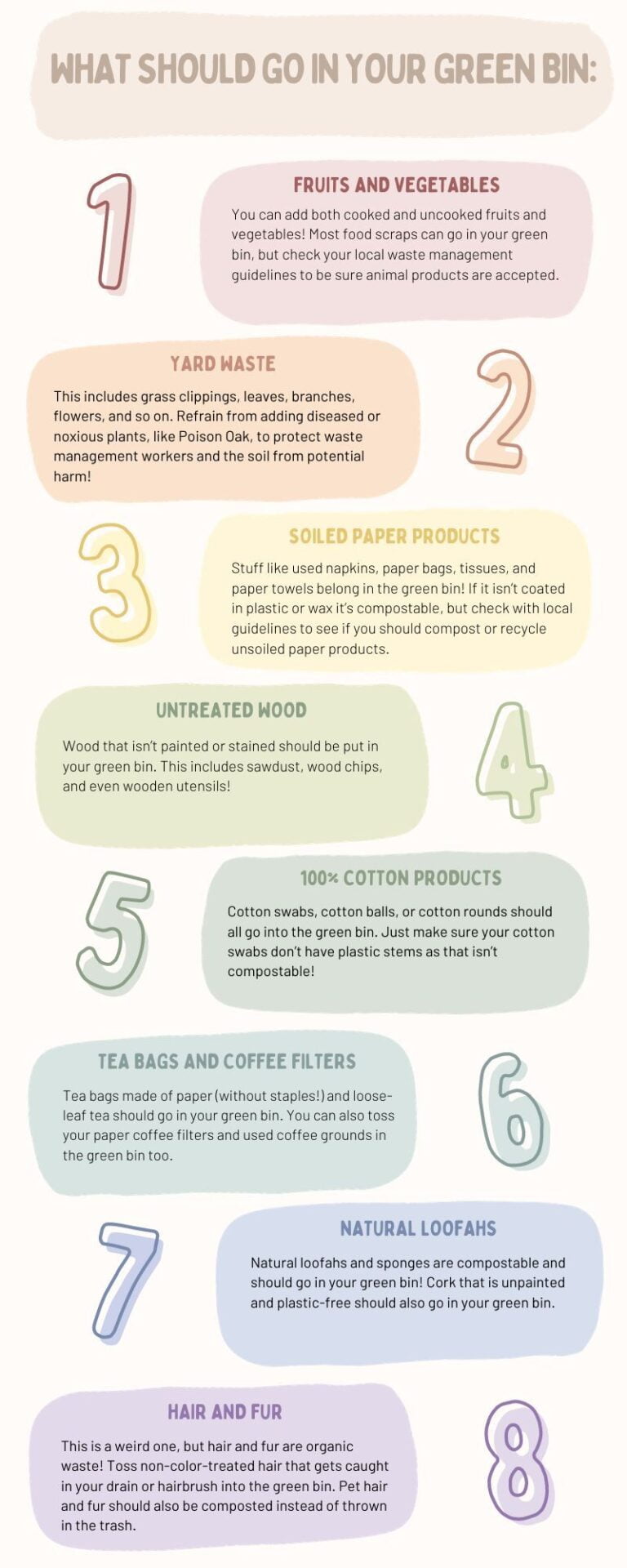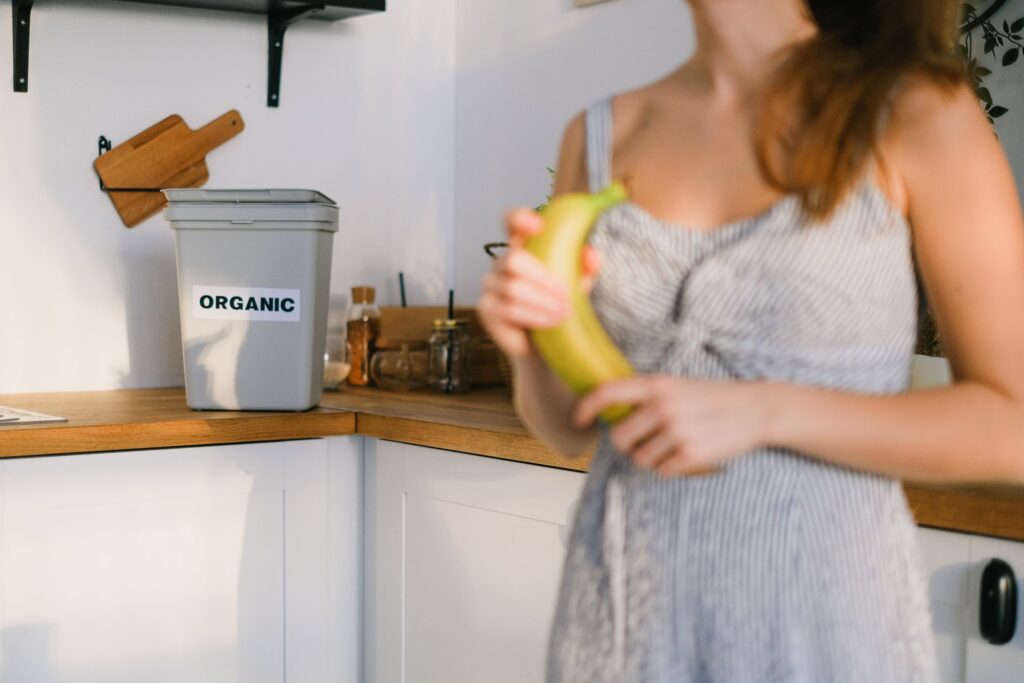This past week I was visiting some family and, as we were in the kitchen cooking, my grandma mentioned they were going to have to start separating their food waste again. Now, we live in California so if a state law is being implanted with them it should be for me. But I wondered when I was going to get the news about my county implementing this composting law too.
I never heard more, so I thought I better learn more! What I found was surprising because the timeline and mandates are a little puzzling. I’m sure I’m not the only one who didn’t get the memo, so here’s what I could find about California’s composting law.
When did this even become a thing?
Well, even though SB 1383 (aka California’s compost law) was created in 2016, California legislators have been phasing composting in since then. Meaning, to increase the likelihood of success, this law is being implemented incrementally. It wasn’t truly put into effect until the beginning of 2022!
Since 2022 Californians and California Businesses have become tasked with separating organic material from other garbage. This means stuff like food scraps and yard waste need to go in your green bin to help divert food waste from landfills.
The state has an impressive goal of diverting 75% of organic waste from landfills by 2025, but California may not have the means to handle all the waste. To meet this goal, quantifying the organic waste each county generates and having the means to process it all is critical. This potentially explains the slow-burn implementation of this law.
Furthermore, the application of this law was initially done on a good-faith basis. However, this is going to change within the next couple of months as Californians may be fined for not correctly separating organic waste come 2024. It’s up to local jurisdictions to impose these rules but state officials will apparently be cracking down on cities and other areas as well.
But what’s the purpose of making a mandatory composting law?
Landfills aren’t the proper environment for the decomposition of organic materials! When organic material tries to decompose in landfills it gets kind of stuck. Due to a lack of oxygen, organic waste can’t properly biodegrade and instead releases heaps of methane (a heavy-hitter greenhouse gas!) into the atmosphere. Municipal waste in landfills is the third largest source of human-made methane emissions, so it’s understandable that we need to tackle this issue.
Plus, an estimated 6 million tons of food waste is sent to landfills by Californians every year! With this composting law, the diverted food and yard waste can help the environment instead of hurt it! That’s because composting is a process that helps organic material biodegrade and transform into nutrient-rich soil.
This law is also calling for businesses to compost food waste and donate edible food to charities and food banks. This is exciting because the amount of food waste businesses create is insane, if you’re like me then I’m sure you’ve seen videos of ~certain~ shops throwing out bins of perfectly good food at the end of each day which is sickening.
Food should have never been going to landfills and we can greatly benefit from changing that habit. Composting not only reduces emissions but improves soil quality, improves groundwater capabilities, and increases the amount of carbon that can be sequestered in the soil. Overall, this composting law could be an amazing solution to food waste problems and climate issues.
What does the average Californian need to do?
Although the logistics of this law have been longwinded, it’s an amazing step in the right direction that only requires some forethought. Simply put, we just need to collectively get in the habit of composting! This can understandably be intimidating, but if my grandma can commit to separating organic waste then so can you!
Some counties offer self-registration so you can compost at home if you want to make compost for your own garden. Otherwise, use your green trash bin or whichever bin is designated for organic waste in your area.
In my home, we use a countertop container with a lid to gather organic waste as needed. My grandma, on the other hand, keeps a trashcan with a lid for organic waste in an easy-to-see spot in the kitchen. You can also bring your organic waste straight out to your green bin or compost bucket if you don’t want food waste to linger in your kitchen.
It’s important to find sustainable methods of dealing with things like waste, but at the same time, we must also redefine our consumerist lifestyles. So, if you dread the thought of composting, try to cut down on food waste instead! This will dramatically reduce the amount of organic waste you create, so won’t have much to add to your green bin. The bottom line is cutting down on and properly disposing of waste are key steps to creating more eco-friendly habits!

Other states such as Washington, New York, and Maryland have their own composting laws and I hope even more states follow suit. The change towards diverting organic waste from landfills won’t show immediate results, as there are still things in landfills as we speak, but this is an amazing step towards cultivating the sustainable future we’re in desperate need of.
Composting is a great way we can fight climate change and once we get past the learning curve of implementing this into everyday life it’ll only have positive outcomes. After learning more about this I’m going to up my composting game, how about you?

